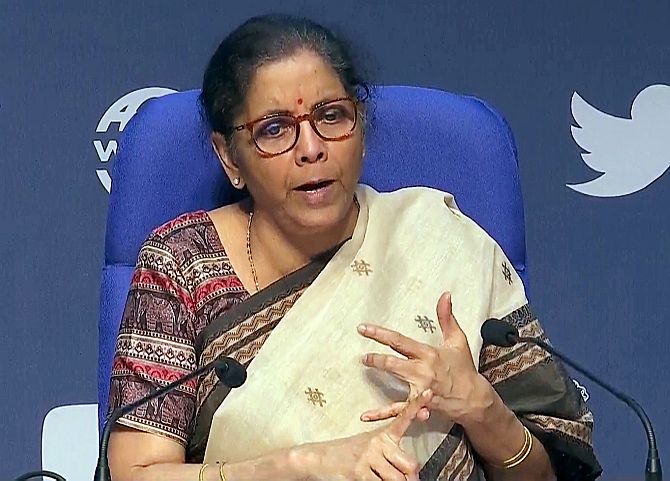The country’s top three venture debt firms -- Alteria Capital, Innoven Capital, and Trifecta Capital -- combined deployed about $300 million (Rs 2,200 crore) in start-ups such as BigBasket, Cure.fit, Ninjacart, Dunzo and Lendingkart till April end, according to the government’s Investindia website.
Illustration: Dominic Xavier/Rediff.com.

Start-up founders are now looking to raise funds through venture debt or at least have some debt element mixed with their current small-ticket funding, as bigger rounds are expected to be delayed owing to the Covid-19 pandemic.
Besides, most start-ups are also not expecting to get the right valuation at this time, as the lockdown imposed to curb the virus’ spread has severely disrupted businesses.
“We have done five transactions in the last four weeks and the average size was around Rs 20 crore each,” said Nilesh Kothari, co-founder and managing partner of Trifecta Capital, a venture debt fund.
“Venture debt is also gaining demand because some businesses are down 30-50 per cent, and the founders are deferring big equity raises by at least 12 months to get proper valuations.”
According to Venture Intelligence data, the number of venture debt investments in 2019 had jumped 72 per cent to $215 million, compared to the previous year.
Vinod Murali, managing partner at Alteria Capital, said there was widespread awareness of venture debt and there were many visible use cases. “I think, the next few months and quarters will see a significant increase in demand, but there is also a higher risk involved, which needs to be balanced,” he said.
The country’s top three venture debt firms -- Alteria Capital, Innoven Capital, and Trifecta Capital -- combined deployed about $300 million (Rs 2,200 crore) in start-ups such as BigBasket, Cure.fit, Ninjacart, Dunzo and Lendingkart till April end, according to the government’s Investindia website, set up under the department for promotion of industry and internal trade.
In the last six years, approximately $4 billion of debt has been deployed across over 150 deals in India, the website added.
Murali of Alteria Capital also said another reason start-up founders preferred debt funding during uncertain times was that they didn’t want to dilute control over the business too much, especially in uncertain times.
While one might think bank loans are better options than venture debt, given the lower cost associated with them, most banks prefer investing in firms that show positive cash flows. They stay away from investing in loss-making companies, given their lack of experience in lending to new-age businesses.
“Venture debt doesn’t require any cash collateral, equity pledges or personal guarantees, typically. The tenor is 2-3 years and the risk is taken on the underlying business backed by VC investors where we have strong relationships,” said Murali.
Kothari of Trifecta Capital also downplayed the reports and surveys that said that most start-ups only had 3-6 months’ runway left, owing to Covid-19 situations. “Venture capitalists and debt funds collectively have around $7 billion of dry powder right now in India to invest in start-ups.”










